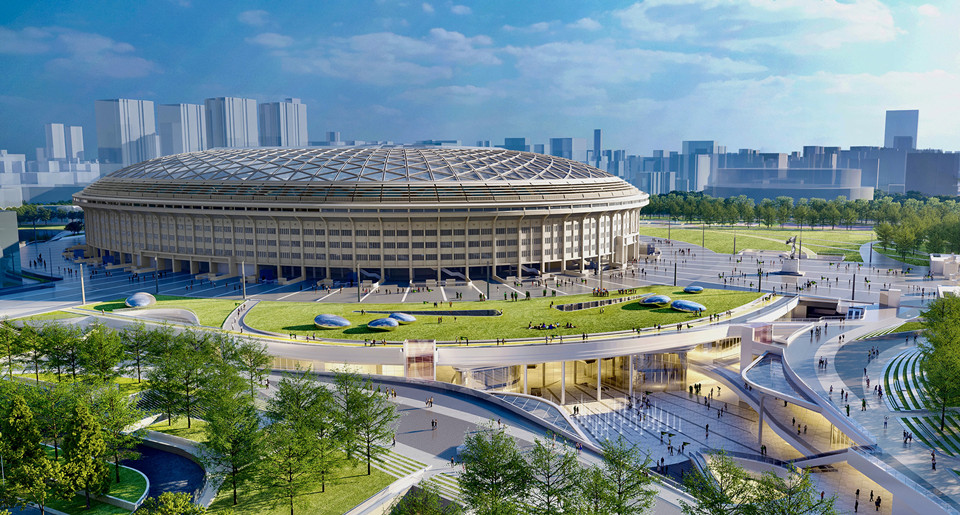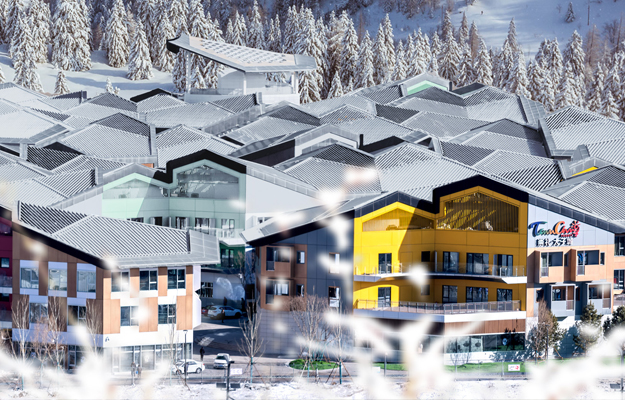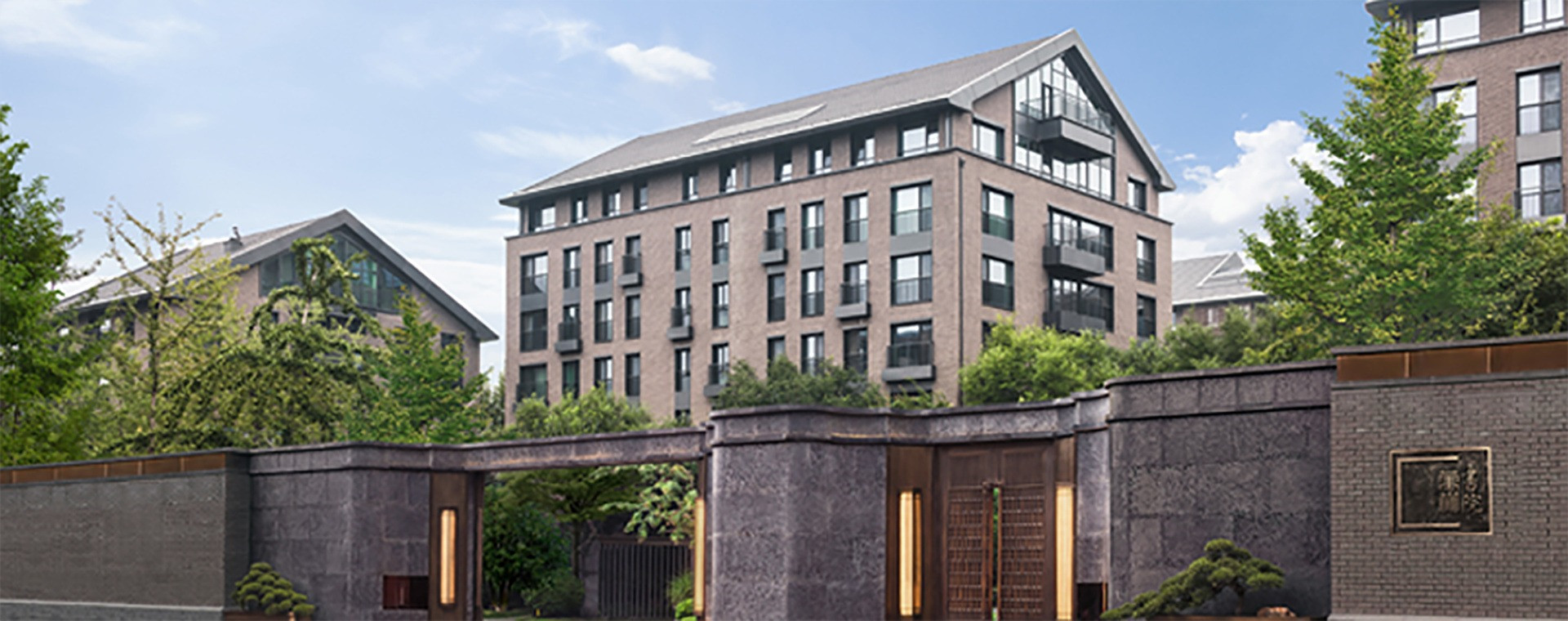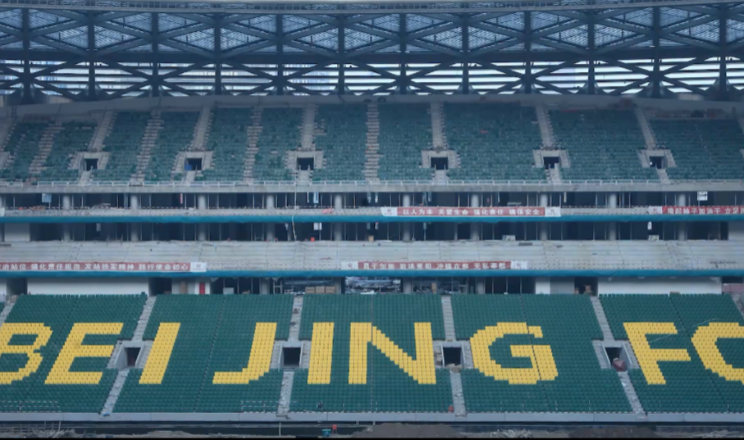On 16 January, 2018, Mr. Steven Sun (Executive Vice President of Sinobo Group and Co-President of Sinobo Land) was awarded the LEED platinum certification by Mr. Mahesh Ramanujam (President and CEO of USGBC and GBCI) for the Wanliu House project.
Wanliu House is the first residential project in Greater China to be awarded the LEED Platinum certification for its buildings. Wanliu House commissioned Beijing team of WSP, a global professional consultant company, also a Platinum member of the US Green Building Council (USGBC) to conduct LEED-NC Platinum certification for the 14 buildings across the project, and to tailor-make development and execution plans for this project. Of the current 14 buildings, 10 have already been certified, and the certification process for the remaining 4 is nearing completion. At present, except for Wanliu House, only one other residential project in China has been awarded the LEED Platinum certification. In addition, Wanliu House is the only one which has applied for and received full certification for all of its buildings. Because of this, the United States Green Building Council (USGBC), the founder organization of LEED rating system, paid special attention to the event.
Mr. Mahesh Ramanujam, president and CEO of USGBC attended the ceremony in person. LEED, (Leadership in Energy and Environmental Design), was created by the US Green Building Council, mainly to provide full life cycle assessment for design, construction and operation of constructions. It is the world's most widely adopted green construction standard. The total construction area certified by LEED has exceeded 1.7 billion square meters, covering more than 167 countries.

The LEED rating system is scored out of 110 and is based on a composite score of certification levels: Qualified (40-49), Silver (50-59), Gold (60-79) and Platinum (80-110). Buildings with higher levels possess more balanced strengths, and are more able to cope with all kinds of challenges from the external environment to better ensure the quality of the indoor environment. Wanliu House has reached the highest level of the rating system - the platinum level with scores above 80 for all of the 14 buildings.
The LEED new Construction system adopted by Wanliu House covers 7 categories, including site selection (land conservation), water use efficiency energy efficiency and atmospheric environmental protection, materials and resource use efficiency, indoor environmental quality, innovation and design processes and regional advantages.
Wanliu House has been unanimously approved through a comprehensive assessment by virtue of scientific planning, the use of modern materials and advanced science and technologies.
Scientific planning is the first step in constructing green buildings. In order to achieve a balance between living comfort and 'land-saving', Wanliu House went through more than 30 rounds of planning processes.
Wanliu House uses recycled water to irrigate green areas, saving about 50% of water consumption when compared to traditional gardens. Selection of water-saving sanitary equipment and the laying of separate sanitary and sewage water pipes will reduce domestic water consumption by 40%.
For 'Energy Utilization Optimization', Wanliu House achieved an energy-saving rate of over 16% through such measures as enclosure optimization, efficient hot water boilers, floor heating, Variable Refrigerant Volume (VRV) and fresh air heat recovery. Taking thermal insulation as an example, the energy-saving calculation shows that the thermal insulation coefficient has reached the most stringent energy-saving standard of 75%, even without taking into consideration the exterior wall. The application of Dutch CRH hand-made clay brick takes the total wall thickness to 400mm, further enhancing the overall insulation.
In addition, the use of solar photovoltaic power supply lighting for the underground garage, (which will save 20-30% of the use of configuration facilities such as home intelligent pre-set systems), are also important pluses for the LEED certification of Wanliu House.

According to the '13th Five-Year Plan' of the Ministry of Housing and Urban-Rural Development, by 2020 the proportion of energy-efficient buildings in residential developments in China will exceed 60%. A number of green building laws such as the 'Building Law' and the 'Energy Conservation Law' have also come into effect.
Mr. Sun said that Sinobo Land is convinced that a good building will not only provide inhabitants with a safe and healthy environment but also utilize energy in a long-term and efficient manner to minimize emissions and damage to the environment. When constructing green, energy-efficient and high-quality buildings, enterprises should be responsible and be able to bring about win-win situations and benefits for its stakeholders.
Mr. Sun also revealed that Wanliu House is the first real estate project constructed entirely to LEED Platinum standards by Sinobo Land, but will not be the last one. Just last year, Sinobo Land announced its strategy adjustment from 'high-end residential development enterprise' to 'high-end property development and operation enterprise'. In the future, Sinobo Land will continue to launch new projects that meet the LEED Platinum standard, not only in the residential sector but also in the business and office sectors.













